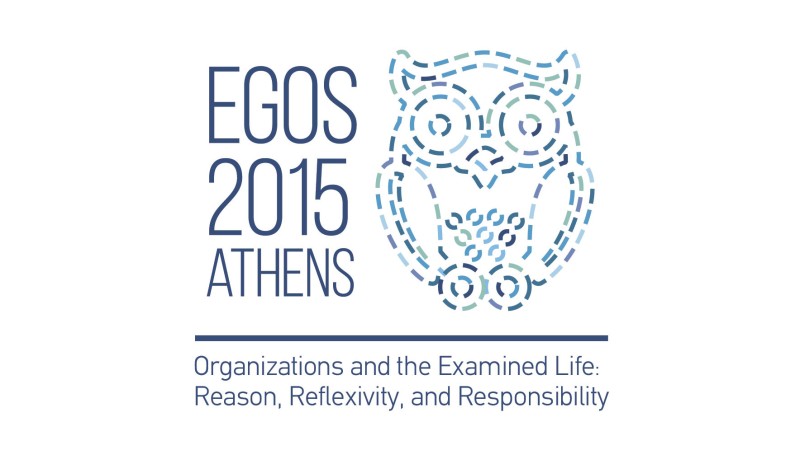Sub-theme 26: Digital Media and Organization
Call for Papers
We propose an encounter between organization and media studies on the question of digital media and their relation
to organization. There is already a firm strand of organizational theorizing emerging out of process philosophy (Chia, 1998),
the 'challenge of materiality' (Leonardi et al., 2012) and actor-network theory (Czarniawska & Hernes, 2005). However,
there is a strong and heterogeneous contemporary tradition of media theory which is largely absent from this focus on technology
and materiality.
One is what has been termed 'new German media theory' (Horn, 2008), which departs from the seminal
work of Friedrich Kittler. It allows for the study of the invariably technological conditioning of organization and organizing
(cf. Hörl, 2011) – its 'medial a priori' –, both in a media archaeological register and with regard to contemporary digital
cultures. Other strands more directly focused on digital media include software studies (Fuller, 2008) and the reconsideration
of media aesthetics in digital times (Hansen, 2006).
We suggest an encounter between these canonical and emerging
strands of media studies and organization studies is timely for both sides. For organization studies, the effect of digital
media on the corporate form and on processes of organizing more generally cannot be ignored. Consider, for example, 'enterprise
resource planning' software such as SAP and its part in the reorganization of global supply chains (Pollock & Williams,
2009). In contrast, consider phenomena such as Occupy and Anonymous that posit new forms of organization
through digital media (Baxmann et al., 2014).
For media studies, such an encounter is equally apposite at least
since Rossiter (2006) called for the invention of new concepts of organization to think through 'organized networks'. Consider,
for example, the way Galloway and Thacker (2007) speak of a 'new physics of organization' wherein the Internet (and protocol
specifically) is not about disorganization, but rather new forms of hierarchy and control. Or consider the proliferation of
concepts such as smart mobs or swarms (Vehlken, 2013) with which media studies seeks to grasp forms of organizing precipitated
by digital media. Here media studies turns to contemporary, at times empirical studies of the kind of objects organization
studies has long been concerned with.
We invite contributions addressing one or more of the following and indicative
list of themes:
- Media archaeologies of organization
- Rewritings of organizational history (and the history of organization theory) as media history
- Software studies of organization (from Excel and PowerPoint to Oracle and SAP)
- Social media and organization (Facebook revolutions, Blackberry riots) and the ‘knot’ of connectivity and collectivity in the digital age
- Digital media, ubiquitous computing and the organization of everyday life
- New forms of surveillance and control (the organization of secrecy vs. transparency in digital culture)
- "The problematic of a renewed empirical mode" (Rossiter, 2006): methodological implications of a media theory of organization
References
- Baxmann, I., Beyes, T., & Pias, C. (2014): Soziale Medien – neue Massen. Zurich: diaphanes.
- Chia, R. (ed.) (1998): Organized Worlds. London: Routledge.
- Czarniawska, B., & Hernes, T. (eds): (2005): Actor-Network Theory and Organizing. Copenhagen: Copenhagen Business School Press.
- Fuller, M. (ed.) (2008): Software Studies. Cambridge: MIT Press.
- Galloway, A.R., & Thacker, E. (2007): The Exploit. Minneapolis: University of Minnesota Press.
- Hansen, M. (2006): Bodies in Code. London: Routledge.
- Horn, E. (2008): "Editor's Introduction: 'There are no media'." Grey Room, 29 (Winter), 6–13.
- Hörl, E. (ed.) (2011): Die technologische Bedingung. Frankfurt: Suhrkamp.
- Leonardi, P.M., Nardi, B.A., & Kallinikos, J. (eds.) (2012): Materiality and Organising. Oxford: Oxford University Press.
- Pollock, N., & Williams, R. (2009): Software and Organisations. London: Routledge.
- Rossiter, N. (2006): Organized Networks. Amsterdam: INC/NAi Publishers.
- Vehlken, S. (2013): "Zootechnologies: Swarming as a cultural technique." Theory, Culture & Society, 30 (6), 110–131.


